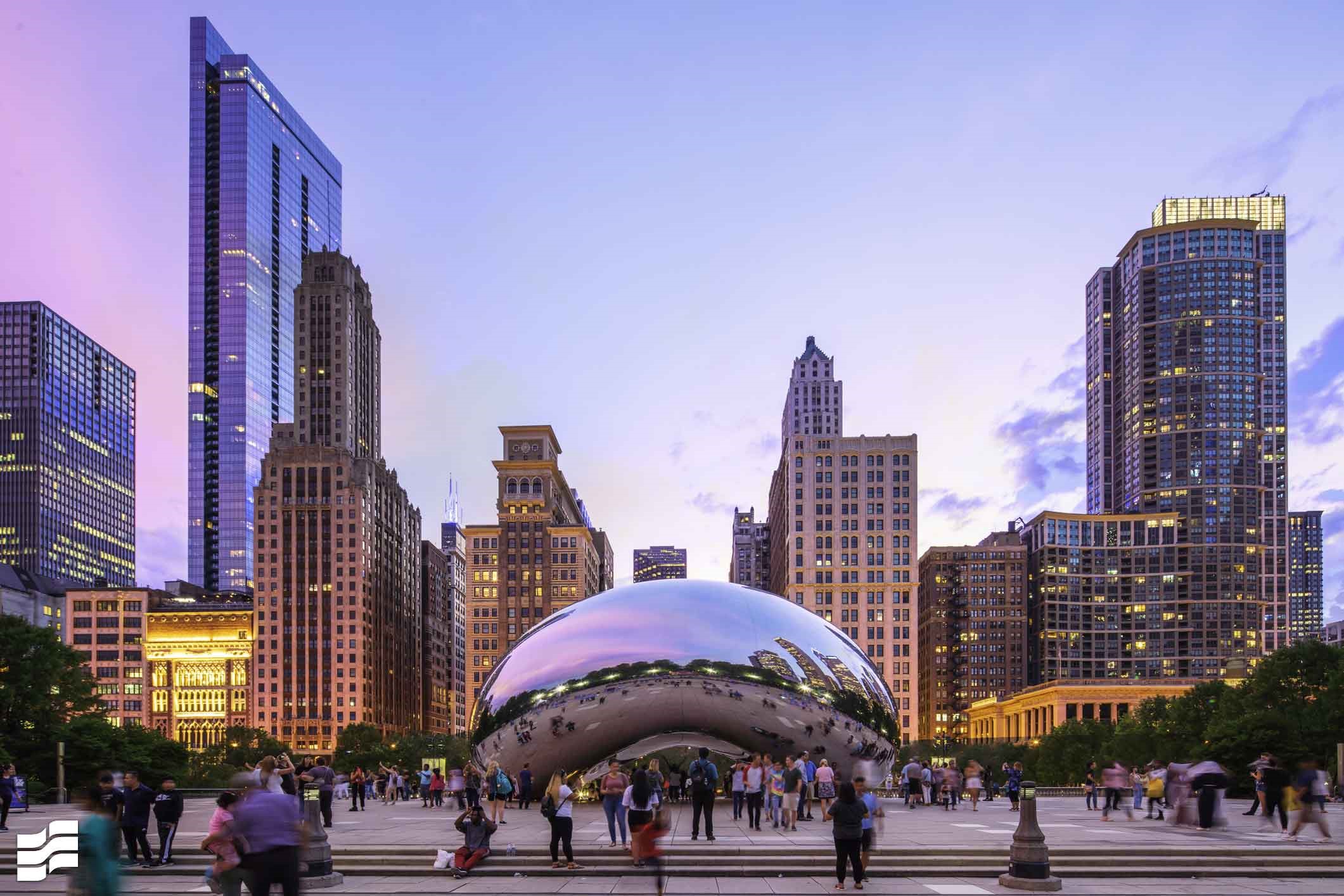Perfect Your Retirement Strategy: Choosing Plans, Funds & More

 Peter Park
Jul 23, 2024
Peter Park
Jul 23, 2024
SVP, National Sales Manager-Mortgage Banking
Chicago's allure is undeniable, with its rich history, iconic architecture, and diverse neighborhoods. If you’re eager to make it your home by buying a house or condo in the Windy City, you’re certainly not alone. Chicago residents can take solace in the fact that mortgages aren’t as high as what’s experienced by other cities, especially New York and Los Angeles.

Navigating the Chicago housing market can be overwhelming, but assembling the right team positions you for success. Beyond a skilled realtor, finding the right mortgage lender is crucial. Mortgage companies like Bank of Hope, with their deep understanding of Chicago's market dynamics, are invaluable allies in securing tailored loans.
Visit our Mortgage page or connect with a loan officer!
Mortgage companies tend not to focus on your geographic location when determining your rate. Therefore, Chicago home buyers can visit our mortgage page to view the latest rates. However, keep in mind that the specific mortgage you’re offered will be determined by:
Bank of Hope is here to help Chicago home buyers explore options and choose the mortgage that aligns best with your financial objectives. We’ll discuss how to score the best mortgage rates, the financial pros and cons of different property types, and how your loan and new home can fit into your overall long-term fiscal plans.
Why choose Bank of Hope for your Chicago mortgage? With a professional home loan team, we grasp the true nuances of the Greater Chicago housing scene, as well as the ever-changing markets.
We pair our expertise with first-rate customer service, meaning that you will receive personalized guidance tailored to your unique needs and goals. Our team's knowledge ensures you make informed decisions, securing the ideal mortgage solution for your Chicago home buying journey.
Good news for Chicago residents—Business Insider finds that the median mortgage rate in Illinois is well below some other states. At $1,804, Illinois’s median is surpassed by DC, Maryland, New Hampshire, Oregon, Rhode Island, and Virginia, just to name a few. However, it’s worth acknowledging that Business Insider’s findings are statewide, meaning that Chicago homebuyers may face steeper mortgage payments than if they purchased in other parts of the region.
Illinois is the second-highest in the country for property taxes. On average, Illinois homeowners pay around 2.07% of their property's value in taxes each year, which is more than twice the national average. However, both Illinois and Greater Chicago are big places, meaning that tax rates will vary throughout. For further information on property taxes in Cook County (which encompasses Chicago) please follow this link.
The process of obtaining a mortgage for Chicago condos may differ slightly from that of a house. Condo mortgages often involve additional steps, such as reviewing condo association documents and assessing the financial health of the association. However, the basic steps of loan application and approval remain similar for both Chicago property types.
There's no guaranteed method to predict whether Chicago home prices will increase or decrease with absolute certainty. However, as of 2024, Chicago's home prices are on an upward trend, mirroring the national trend. Additionally, due to high demand and limited supply, Chicago homeowners can anticipate their property values to rise. It's important to note that while this holds true the overall city, localized factors can influence property values.
Purchasing a fixer-upper in Chicago may promise savings, yet buyers often overlook the extent of renovations and the associated time and costs. In addition, if the property is uninhabitable during renovations, extra expenses for temporary housing arise. While it can save money in the long run, thorough assessment of renovation needs is vital before committing to a purchase.
Nation wide, homeowners are experiencing steadily climbing homeowner’s insurance rates, and Chicago is no different. Thankfully, Illinois doesn’t experience the spikes seen by California and Florida residents, or even as high of rates as neighboring states like Missouri, Texas, and Kentucky. However, Chicago’s average homeowners insurance fees are higher than the state average.
Factors that influence your homeowner’s insurance rate include risks presented by the surrounding area (whether that be flooding, crime, or otherwise), as well as the age and condition of the structure. Your credit score will also play a role in shaping rates.
Determining the estimated fair market value (FMV) of a potential Chicago property can be straightforward. After all, the selling prices of neighboring homes are publicly available on popular real estate platforms. Our tip? Look at what other houses or condos of similar sizes sold for in the past year.
When assessing a Chicago home's asking price, consider factors like the property's condition, required repairs, and additional expenses such as HOA fees.
For added assurance regarding your purchase price, team up with a trusted mortgage provider such as Bank of Hope, with expertise in the Chicago market. This partnership ensures that the appraisal accurately reflects loan amounts in line with property values.
Getting a mortgage can be an intimidating process, regardless of whether you’re purchasing a Chicago condo or a Naperville single-family home. To better prepare yourself for what to expect, read:


